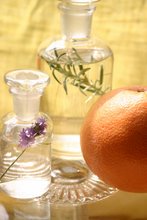Key points of the review include:
- Resveratrol exhibits therapeutic potential for cancer chemoprevention as well as cardioprotection.
"It sounds contradictory that a single compound can benefit the heart by preventing damage to cells, yet prevent cancer by causing cell death, said Brown. "The most likely explanation for this, still to be rigorously proved in many organs, is that low concentrations activate survival mechanisms of cells while high concentrations turn on the in-built death signals in these cells."
- Resveratrol may aid in the prevention of age-related disorders, such as neurodegenerative diseases, inflammation, diabetes, and cardiovascular disease.
"The simplest explanation is that resveratrol turns on the cell's own survival pathways, preventing damage to individual cells," said Brown. "Further mechanisms help, including removing very reactive oxidants in the body and improving blood supply to cells."
- Low doses of resveratrol improve cell survival as a mechanism of cardio- and neuro-protection, while high doses increase cell death.
"The key difference is probably the result of activation of the sirtuins in the nucleus," said Brown. "Low activation reverses age-associated changes, while high activation increases the process of apoptosis or programmed cell death to remove cellular debris. Similar changes are seen with low-dose versus high-dose resveratrol: low-dose resveratrol produces cellular protection and reduces damage, while high-dose resveratrol prevents cancers."
"Resveratrol is largely inactivated by the gut or liver before it reaches the blood stream, where it exerts its effects – whatever they may be – good, bad, or indifferent. Thus, most of the reseveratrol in imbibed red wine does not reach the circulation. Interestingly, absorption via the mucous membanes in the mouth can result in up to around 100 times the blood levels, if done slowly rather than simply gulping it down. Of course, we don't know if these things matter yet, but issues like this are real and generally ignored by all.""

No comments:
Post a Comment